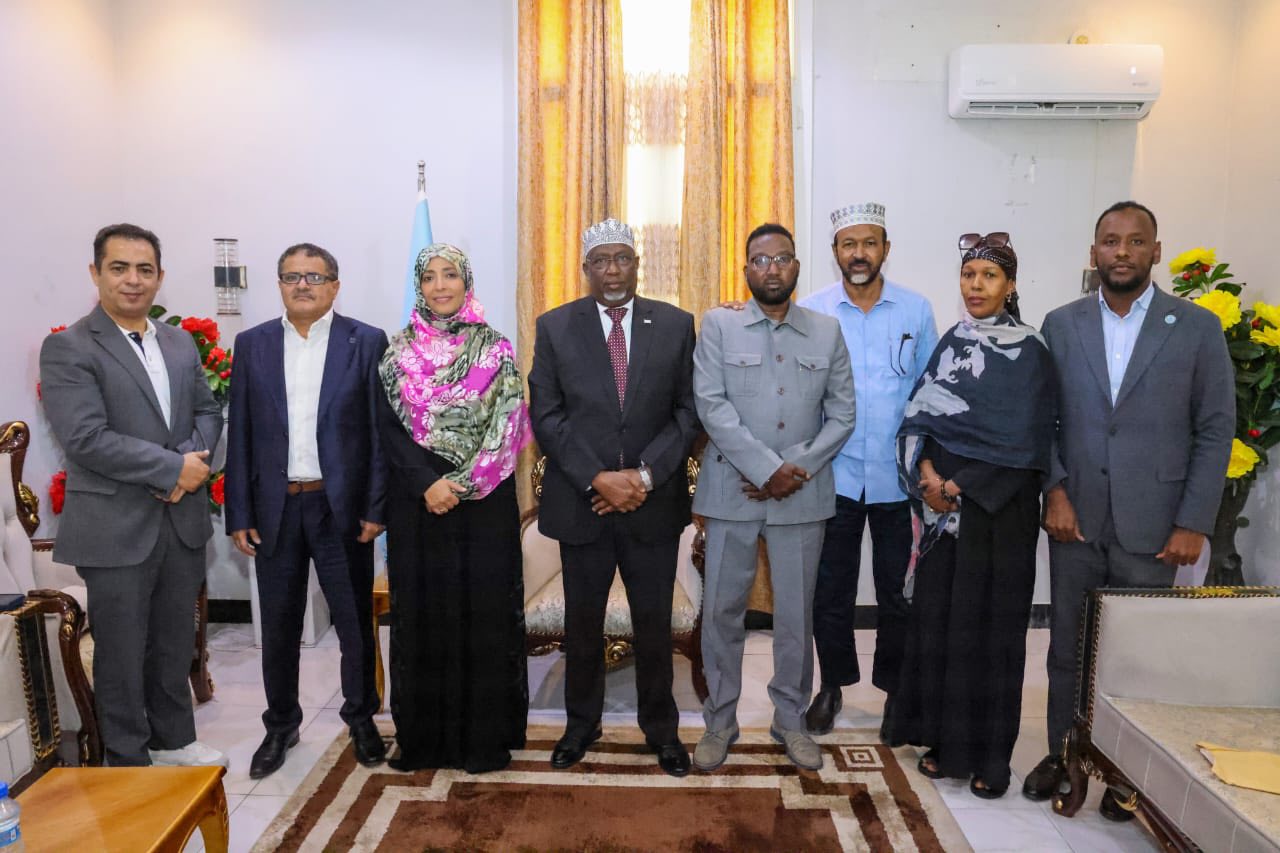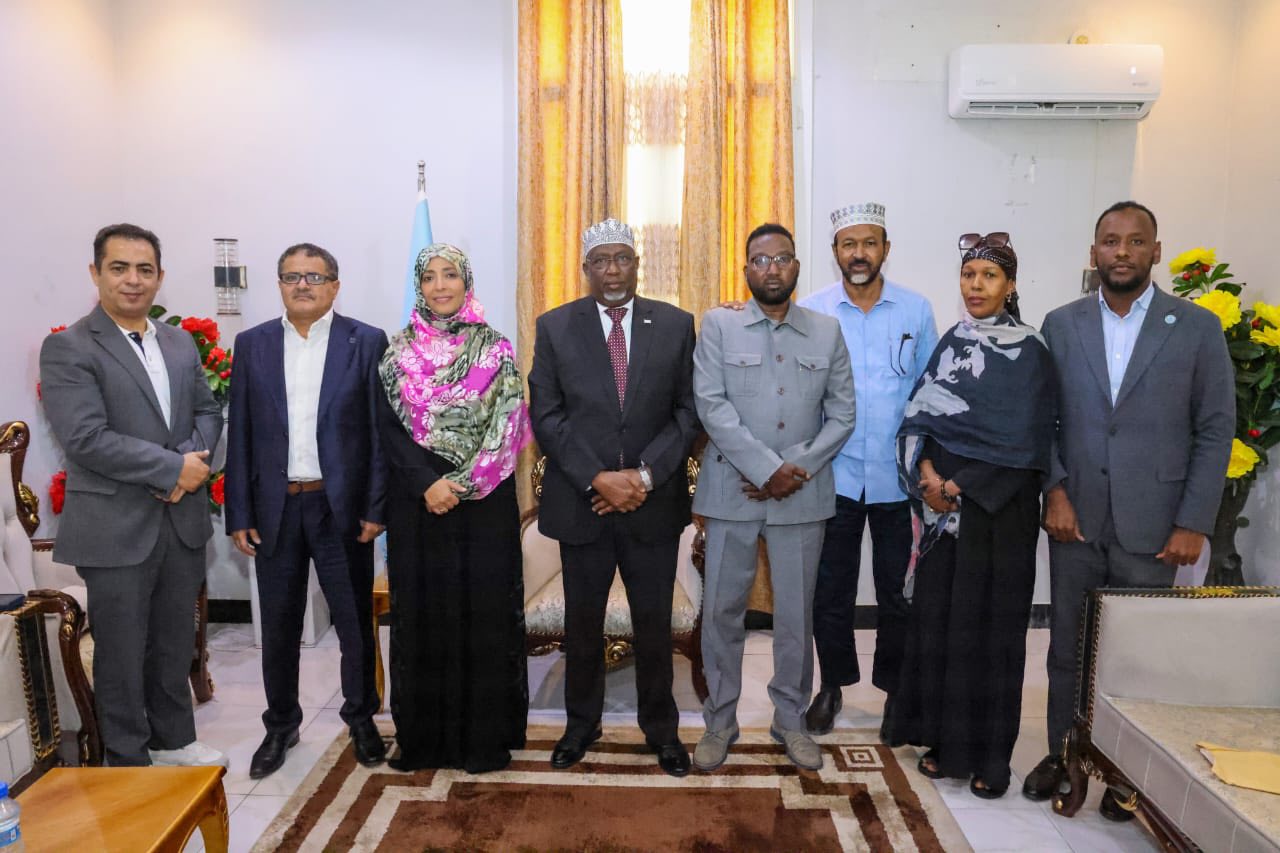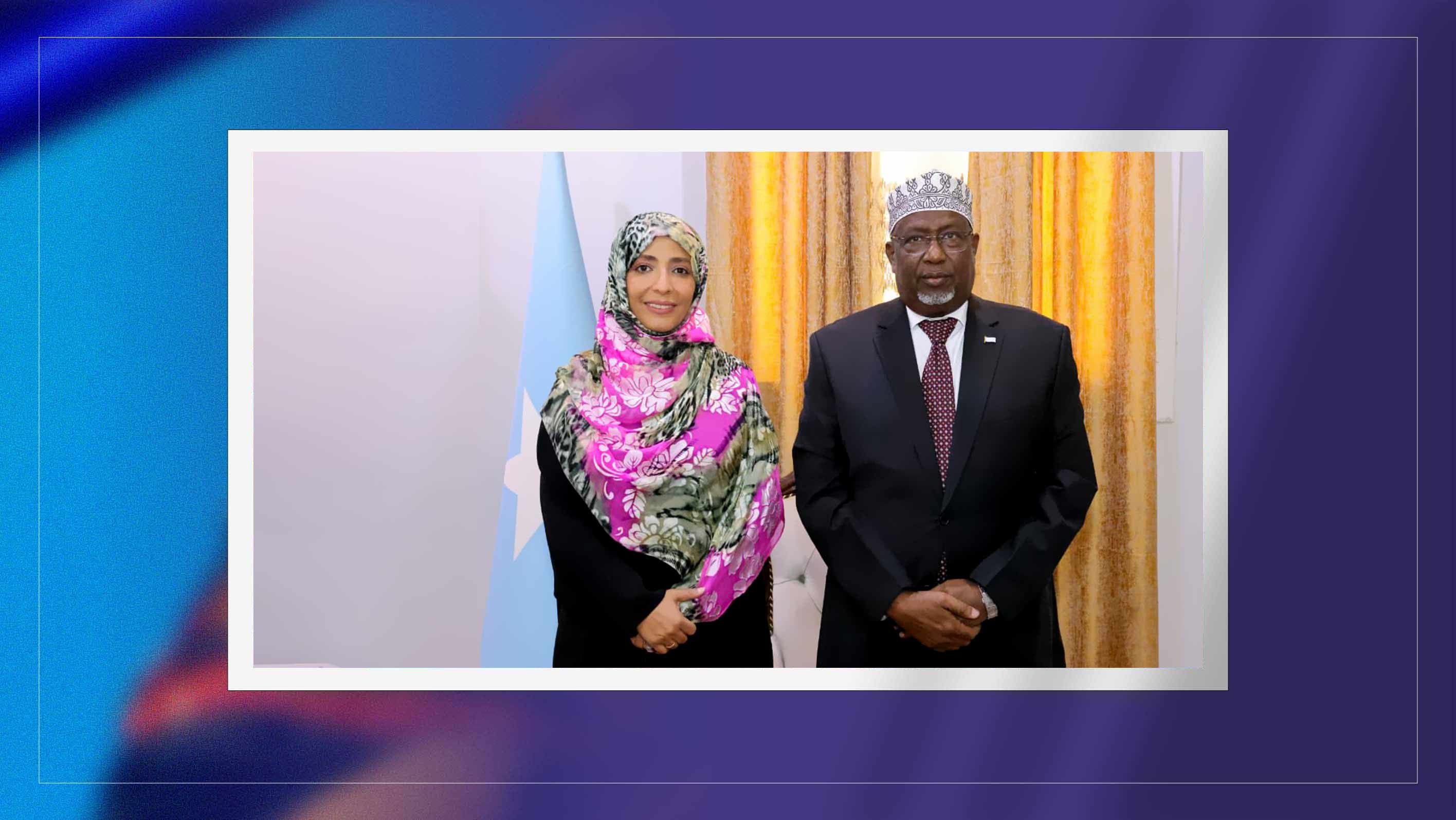Somali Parliament Speaker Adem Mohamed Nour has welcomed Yemeni Nobel Peace Prize laureate Tawakkol Karman to Mogadishu, describing her visit as a sign of Somalia’s resilience and gradual return to stability after decades of conflict.
Karman, who began her visit to the Somali capital earlier this week, met with the speaker to discuss political reforms, state-building, and regional cooperation. During the meeting, she praised the Somali Parliament for its efforts to strengthen national unity, review the interim constitution, and pursue legislative reform aimed at consolidating Somalia’s fragile democratic process.
“I commend your role in preserving Somalia’s Islamic identity and ensuring that legislation aligns with tolerant Islamic Sharia, while also supporting national unity and parliamentary reform,” Karman said.
The human rights advocate also highlighted Somalia’s ongoing reconstruction drive, noting the rehabilitation of the capital’s port and airport, along with the construction of schools and hospitals to expand access to basic services. She said these steps reflect a broader push toward restoring political and social stability.
Karman emphasized that Somalia’s transition toward universal suffrage elections would mark an important step in strengthening national unity and preventing divisions along tribal or political lines. She further praised parliament’s contribution to easing the long-standing international arms embargo and its role in efforts to build a strong national army capable of extending the state’s authority, protecting sovereignty, and ensuring territorial integrity.
The Nobel laureate also underscored the historic and cultural ties between Somalia and Yemen, two nations linked across the Bab al-Mandab Strait. She described the waterway as a vital global passage through which Yemenis and Somalis have long exchanged trade, culture, and ideas.
“We will remain the guardians of this strait and its people,” Karman said, stressing the depth of social and familial connections between the two populations. She noted that centuries of intermingling had produced cultural and civilizational bonds, as well as economic and commercial partnerships.
At the same time, she warned that both countries face common threats from terrorism and regional instability, making cooperation essential. She expressed hope that Yemen and Somalia could continue to pursue shared aspirations of national unity, democracy, and prosperity.
For his part, Speaker Adem Mohamed Nour hailed Karman’s presence in Mogadishu as both symbolic and practical. He said her visit demonstrated growing international confidence in Somalia’s progress and sent “a courageous and clear message to the world that Mogadishu has become a safe capital that everyone can visit without fear.”
The speaker also praised Karman’s global advocacy on behalf of oppressed peoples and her defense of rights and freedoms in international forums. He recalled Yemen’s support for Somalia during its civil war and noted the strong role Yemeni traders continue to play in the Somali economy.
“Yemen is the closest country to Somalia, and our peoples share kinship, brotherhood, and suffering,” Nour said. “We welcome all Yemenis who have fled the war, considering them part of our social fabric.”
Nour further encouraged Karman’s International Foundation to extend its humanitarian and development programs into Somalia, particularly to support women, children, and reconstruction efforts. He said such work would complement the government’s recovery program and strengthen ties between the two nations.
The speaker concluded by expressing solidarity with Yemen and its people, voicing hope that the war-torn country would regain stability and overcome attempts to undermine its unity and territorial integrity.



